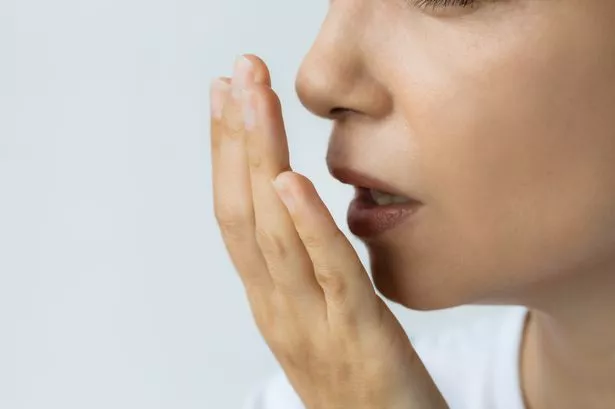URGENT UPDATE: A leading dentist has issued a critical warning about persistent morning breath, stating it could indicate serious health problems. Dr Mohammed Ali from Emerdency reveals that while most people experience morning breath, unusually strong or persistent odors might point to underlying medical conditions.
Dr Ali emphasizes that while morning breath is often dismissed as a trivial issue, its potential links to health concerns warrant immediate attention. “Almost everyone notices some morning breath upon waking, which can leave the mouth and taste less than fresh,” he states. However, conditions such as gum disease, dry mouth, and even systemic illnesses could be at play.
The dentist explains that saliva production significantly drops during sleep, which can lead to bacterial buildup in the mouth. This creates a breeding ground for anaerobic bacteria, such as Porphyromonas gingivalis and Prevotella intermedia, responsible for foul-smelling compounds.
NEW FINDINGS: Persistent bad breath could be an early warning sign for the following conditions:
1. **Gum Disease (Periodontitis)**: This is one of the leading causes of ongoing morning breath. The bacteria that emit sulfur gases are also linked to inflammation and damage in periodontal tissues. Dr Ali cautions that early gum disease may progress without obvious symptoms.
2. **Dry Mouth (Xerostomia)**: A consistent dryness can exacerbate morning breath. Many medications, including those for blood pressure and depression, can reduce saliva flow, allowing harmful bacteria to thrive.
3. **Sinus and Throat Infections**: Infections can lead to post-nasal drip, coating the throat and tongue with mucus that bacteria convert into foul-smelling gases.
4. **Acid Reflux (GORD)**: Stomach acid and partially digested food can travel back into the mouth, creating a sour odor that persists despite brushing.
5. **Systemic Illness**: Conditions such as poorly controlled diabetes, kidney disease, and advanced liver disease can also manifest through changes in breath odor. For instance, diabetes may produce an acetone-like scent, while kidney disease can lead to ammonia-like odors.
WHAT YOU NEED TO KNOW NOW: If you or someone you know experiences ongoing morning breath, it may be time to consult a professional. Dr Ali encourages seeking advice from a dentist to explore potential infections or gum disease, and a doctor for issues like reflux or other systemic conditions.
PREVENTION TIPS: To mitigate morning breath, Dr Ali offers these actionable steps:
– **Brush, Floss, and Clean Your Tongue**: Regular cleaning removes trapped food and bacteria, particularly from the tongue, which harbors odor-causing bacteria.
– **Stay Hydrated**: Drinking water throughout the day helps cleanse the mouth, while chewing sugar-free gum can stimulate saliva production.
– **Use Antimicrobial Rinses**: Opt for alcohol-free mouthwashes with ingredients like chlorhexidine to control bacteria and reduce sulfur gases.
– **Mind Your Diet**: Foods like garlic and onions linger on the breath, while coffee and alcohol can dry the mouth. Avoid late-night snacking to limit bacteria growth.
– **Consult Professionals**: Persistent issues warrant a visit to a dentist or doctor for an accurate diagnosis and appropriate treatment.
Dr. Ali’s insights serve as a timely reminder to pay attention to the signs our bodies give us. Morning breath may be common, but understanding its potential implications is crucial for maintaining overall health. Don’t ignore the warning signs—take action today!






